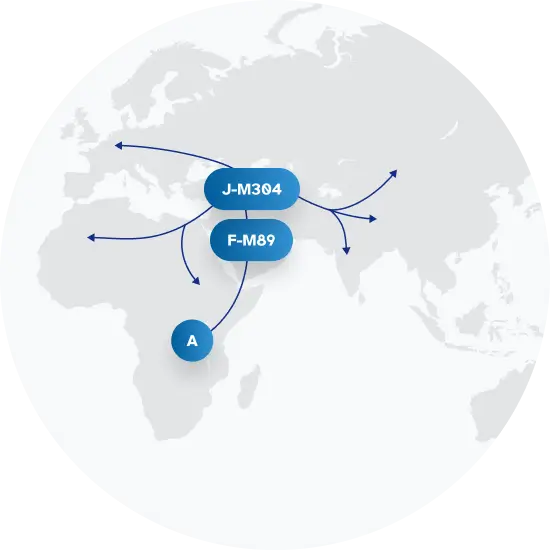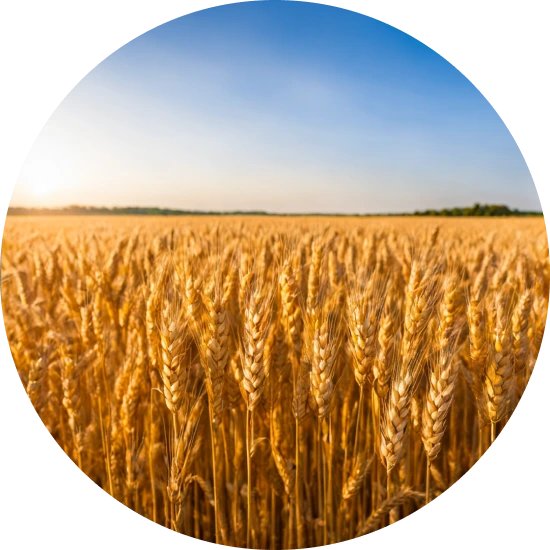Explore the Family Name Khalsa
How common is the last name Khalsa in the United States?
According to data from the Decennial U.S. Census, the popularity of the surname Khalsa saw minor changes between 2000 and 2010. In 2000, it ranked 19,090 in terms of commonness, but by 2010, its rank had slightly dropped to 19,716. This change represents a decrease of about 3.28%. However, the actual count of individuals with the Khalsa surname increased over the same period, from 1,318 in 2000 to 1,366 in 2010, indicating a growth of 3.64%. The proportion per 100,000 people slightly decreased by 6.12%, going down from 0.49 to 0.46.
| 2000 | 2010 | Change | |
|---|---|---|---|
| Rank | #19,090 | #19,716 | -3.28% |
| Count | 1,318 | 1,366 | 3.64% |
| Proportion per 100k | 0.49 | 0.46 | -6.12% |
Race and Ethnicity of people with the last name Khalsa
On the ethnicity front, the Decennial U.S. Census data showed shifts in the ethnic identities associated with the surname Khalsa between 2000 and 2010. While the largest group remained those identifying as White (72.47% in 2010, down from 82.55% in 2000), there was a significant increase in individuals identifying as Asian/Pacific Islander, going up from 9.41% to 18.37%. There were also increases in those identifying as Hispanic (from 2.20% to 3.59%) and those identifying as American Indian and Alaskan Native (from 0.38% to 0.44%). The percentage of individuals identifying with two or more races marginally increased from 3.72% to 4.03%. Conversely, there was a notable decrease amongst Blacks, dropping from 1.75% to 1.10%.
| 2000 | 2010 | Change | |
|---|---|---|---|
| White | 82.55% | 72.47% | -12.21% |
| Asian/Pacific Islander | 9.41% | 18.37% | 95.22% |
| Two or More Races | 3.72% | 4.03% | 8.33% |
| Hispanic | 2.2% | 3.59% | 63.18% |
| Black | 1.75% | 1.1% | -37.14% |
| American Indian and Alaskan Native | 0.38% | 0.44% | 15.79% |
Khalsa ancestry composition
23andMe computes an ancestry breakdown for each customer. People may have ancestry from just one population or they may have ancestry from several populations. The most commonly-observed ancestry found in people with the surname Khalsa is British & Irish, which comprises 37.2% of all ancestry found in people with the surname. The next two most common ancestries are Ashkenazi Jewish (17.9%) and French & German (17.6%). Additional ancestries include Scandinavian, Eastern European, Spanish & Portuguese, Northern Indian & Pakistani, and Italian.
Ready to learn more about your ancestry? Get the most comprehensive ancestry breakdown on the market by taking our DNA test. Shop 23andMe
| ANCESTRY BREAKDOWN | COMPOSITION |
|---|---|
| British & Irish | 37.2% |
| Ashkenazi Jewish | 17.9% |
| French & German | 17.6% |
| Other | 27.3% |

Possible origins of the surname Khalsa
Your DNA provides clues about where your recent ancestors may have lived. Having many distant relatives in the same location suggests that you may all share common ancestry there. Locations with many distant relatives can also be places where people have migrated recently, such as large cities. If a large number of individuals who share your surname have distant relatives in a specific area, it could indicate a connection between your surname and that location, stemming from either recent ancestral ties or migration.
Based on 23andMe data, people with last name Khalsa have recent ancestry locations in the United Kingdom of Great Britain and Northern Ireland and Ireland.
| RECENT ANCESTRY Location | Percentage |
|---|---|
| Merseyside, United Kingdom | 64.40% |
| Lancashire, United Kingdom | 64.40% |
| Greater London, United Kingdom | 64.40% |
| West Midlands, United Kingdom | 64.40% |
| Greater Manchester, United Kingdom | 64.40% |
What Khalsa haplogroups can tell you
Haplogroups are genetic population groups that share a common ancestor on either your paternal or maternal line. These paternal and maternal haplogroups shed light on your genetic ancestry and help tell the story of your family.
The top paternal haplogroup of people with the surname Khalsa is J-M304, which is predominantly found among people with European ancestry. Haplogroup J-M304 is descended from haplogroup J-M304. Other common haplogroups include R-Z381 and I-M170, which are predominantly found among people with European and European ancestry. Other surnames with similar common haplogroups are: Bard, Percy, Belmont, Seltzer, Symons, Boden, Newhouse, Miguel, Markus, Bastian.
The most common maternal haplogroups of people with Khalsa surname are: H1, N, H. These most commonly trace back to individuals of European ancestry.
 Paternal Haplogroup Origins J-M304
Paternal Haplogroup Origins J-M304
Your paternal lineage may be linked to some of the first farmers
It was in the heart of the Middle East, soon after the Ice Age drew to a close 12,500 years ago, that humans first learned to domesticate cereals and livestock and completely transformed their way of life. They began to live more sedentary lives in closer proximity to one another. With greater resources, cultures in the Fertile Crescent made technological advances more rapidly than ever before. Farming was such a successful strategy that populations boomed, sparking waves of migration into Europe about 8,000 years ago. Men bearing haplogroup J were among the drivers of this innovation, and were also among the first waves to spread the new technology across the continents.
Your maternal lineage may be linked to Marie Antoinette
Because it is so dominant in the general European population, haplogroup H also appears quite frequently in the continent's royal houses. Marie Antoinette, an Austrian Hapsburg who married into the French royal family, inherited the haplogroup from her maternal ancestors. So did Prince Philip, Duke of Edinburgh, whose recorded genealogy traces his female line to Bavaria. Scientists also discovered that famed 16th century astronomer Nicolaus Copernicus traced his maternal lineages to haplogroup H.

What do people with the surname Khalsa have in common?
Spoiler alert: it's complicated. People with the same last name are usually no more genetically similar than a randomly sampled group of people from the same population. That said, people with the same surname are more likely to have similar ancestries than randomly sampled individuals. The reason is the tendency of people with similar cultural or geographical backgrounds to preferentially mate with one another. That's why people who share a surname may be more likely to share traits and tendencies in common than people within the general population. Check out the percentages below to see the prevalences of tastes, habits, and traits of people with your surname compared with prevalences among 23andMe users.
Preferences
Traits
Habits
Wellness

Migraine
A severe headache characterized by intense pain, sensitivity to light and sound, and often accompanied by nausea and vomiting.
"Khalsa" Surname 19.5%
23andMe Users 16.4%
Are health conditions linked to the last name Khalsa?
The short answer is that, if there is an association between surname and health, it's usually more about your ancestry than your name. Individuals with a given surname are no more genetically similar than the general population but often have similar ancestries. The populations of people associated with those shared ancestries often have sets of genetic variations, also known as alleles, in common. Some of those alleles are associated with a greater likelihood of developing certain diseases.
Disease variant frequency by ancestry
Disease allele frequencies in populations associated with the surname Khalsa are shown below. Important Note: not everyone with a disease allele will develop these health condition










